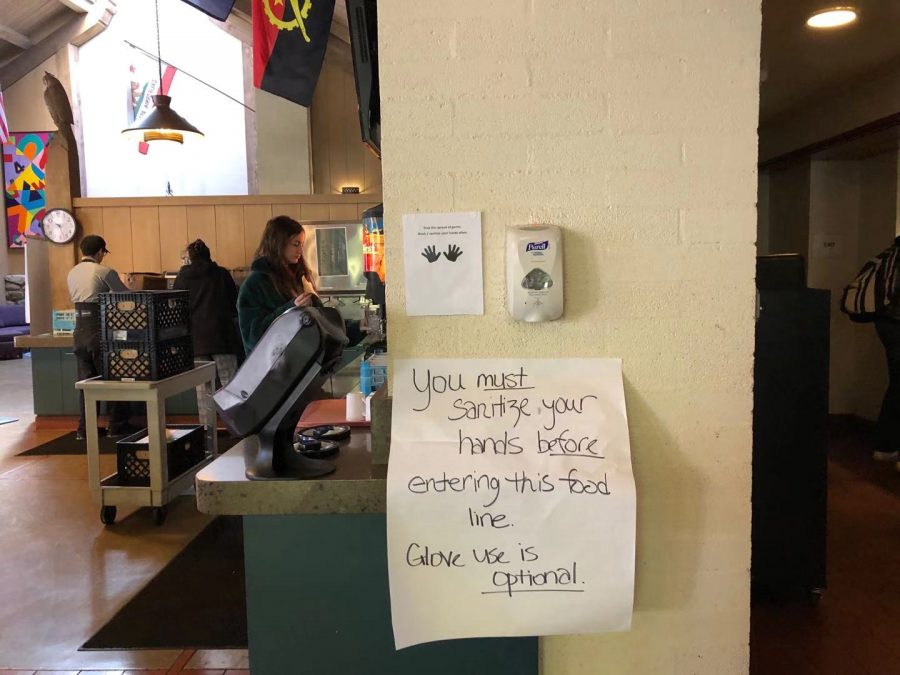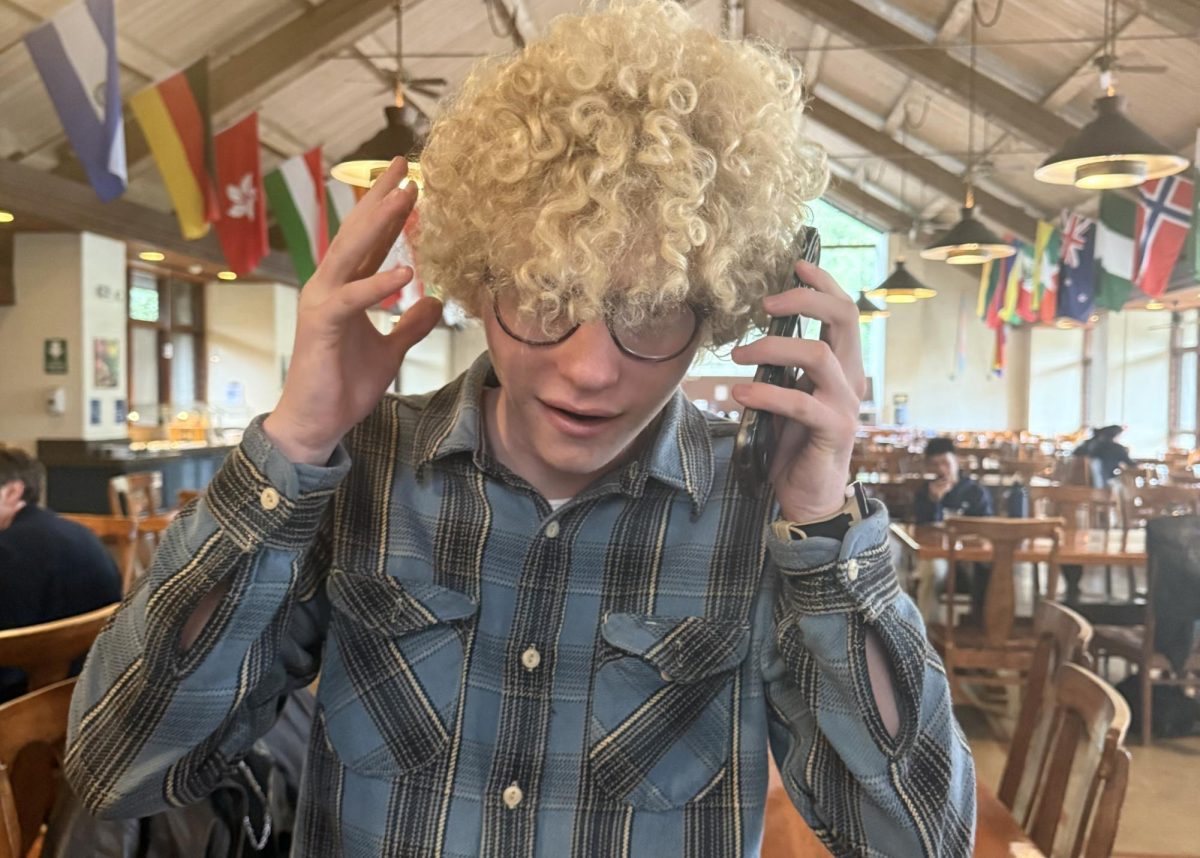Only a month into the new year, there has been a proliferation of a new viral outbreak in the world. This disease, called the novel coronavirus, is a respiratory illness that initially began in Wuhan, China in late 2019, according to the World Health Organization (WHO).
The coronavirus was traced to the Huanan Seafood Market, a wet market filled with live animals as well as illegal wildlife trade. Because of the proximity of shoppers and stall vendors to live and dead animals, the virus initially was transmitted from animals to humans, and then from human to human.
Experts have not yet confirmed the animal species that carried the original virus, but many experts suspect bats due to the similarities between the genetic code between bats and the novel coronavirus.
According to the CDC official website, this novel coronavirus is part of the larger coronavirus family, which causes mild respiratory infection, like the common cold, or severe acute respiratory syndrome (SARS), or Middle East respiratory syndrome (MERS). The virus spreads on a person-to-person basis and can cause symptoms such as fever, cough, and shortness of breath. The incubation period of the virus ranges from two to fourteen days.
Unlike SARS and MERS however, the novel coronavirus is more prone to target adults who have compromised immune systems due to chronic illnesses. Current statistics suggest that out of the 2% of patients who have died, there are higher fatality rates among older patients with medical histories of diabetes, hypertension, or coronary artery disease.
The virus has quickly spread across China, resulting in 11,791 confirmed cases. Moreover, it has spread abroad and has resulted in isolated cases affecting small numbers of people in Australia, France, Nepal, Malaysia, Japan, Macao, South Korea, Thailand, Vietnam, Singapore, and the United States. These cases mostly involve people who had recently traveled from the affected regions in China.
Since January 23, 2020, the Chinese city of Wuhan, the capital of Hubei Province, is on lockdown to prevent further spread of the virus, and all public transportation in and out of the city have been suspended indefinitely. According to the South China Morning Post, more than 11 million people are currently living in lockdown amidst the 2020 Lunar New Year holiday.
So far, there have been 11 confirmed cases of coronavirus in the United States. The first case of infection was in Seattle, Washington on January 22nd, 2020, a case that involves a suburban resident who recently returned from Wuhan. The second case was in Chicago, Illinois on January 24th, 2020 and involves a hospitalized woman in her 60s who last traveled to Wuhan in December of 2019. The recent third case was in Orange County, California on January 26th, 2020; the patient is currently in good condition and in isolation at a hospital.
Throughout the escalating outbreak of coronavirus in recent weeks, live reporting and updates on the situation have been on the front page of major U.S. news media such as the New York Times and The Washington Post. CNN even launched an Instagram story series on January 24th, featuring reporter David Culver’s journey to Wuhan and a simple Q&A with answers to questions such as “How is the coronavirus transmitted?” and “What are the symptoms?”.
The CDC has also been closely monitoring the status of the virus and is working with the WHO. In addition, the US is also conducting entry screening of all passengers who traveled on direct and connecting flights from Wuhan, China in five major airports: Atlanta (ATL), Chicago (ORD), Los Angeles (LAX), New York City (JFK), and San Francisco (SFO).
“We have been closely monitoring the global movement of the coronavirus,” said Dr. Smith in an email that addresses the concern from students, faculties, and parents. “As is Webb’s practice, we have been in contact with medical professionals and reviewed the protocols recommended by the U.S. Centers for Disease Control & Prevention (CDC).”
The WHO has declared the novel coronavirus a public health emergency of international concern. To minimize harm, it is important for students, staff, and faculty members on the Webb campus to be mindful of their personal hygiene and health.
“We have viruses all the time, and here are some precautions,” said Stephanie Baron, Director of the Health Center. “Wash your hands with soap and water, avoid close contact with people who are sick, stay home if sick, cover cough and sneeze with tissues and throw away immediately”
“The coronavirus is getting very scary,” said Cindy Zhu (‘23), an international student from Wuhan. “Many cases have been reported in China, and the virus spreads very easily too… Wearing face masks is definitely important. In an infected area, the virus spreads very quickly via spit and human contact. We also need to keep in mind that normal face masks would not work. We have to buy a specific type of face mask… We also need to wash our hands often to stay sanitized and avoid crowded places.”
Many people inevitably compare the coronavirus outbreak with SARS and MERS. Given the refining medical conditions and the known cases, students have good reasons to remain optimistic.
“I think that many people are overreacting, especially since the status of the coronavirus patient in Irvine is under control,” said Elaine Shao (’21). “Especially now, many medical departments now are paying close attention to the virus so I don’t think the disease will spread a lot.”
At Webb, students can always take advantage of the dining hall and health center to stay hygienic.
“For Webb, specifically, the dining hall can be a vector,” said Ms. Baron. “Use the sanitizer before handling serving utensils; get a new plate if going for second rounds to avoid cross-contamination; always feel free to go to the health center; read reliable sources, which, in this case, is the CDC.”
Specifically, the dining hall has been taking action to combat the fear and potential infection of the virus. Students and faculty members have noticed the change and are in support of such preventions.
Instead of getting food with their bare hands, students now are required to take more precautionary actions. In the dining hall, students are suggested to wash hands and use hand sanitizer before getting food. The dining hall staff have also started to serve students food on the line. Students eating from the salad bar, bagel bar, panini bar, and any other self-serve area are required to put on the provided gloves before getting food.
“I think that the school is doing the best to prevent the coronavirus paranoia,” said Alice Hou (‘20). “I know that a lot of parents are concerned about the situation, so the action is necessary, but at the same time, I also understand why some people might be against it…Personally, I wash my hands with soap now to stay hygienic.”
Outside the dining hall, one of the most populated spots on campus, students and faculty members can also take advantage of other facilities. For example, in bathrooms, dorms, and other common spaces, sanitation stations are installed. The health center has also ordered extra sanitizing supplies to distribute on campus.
“The best way to prevent infection is to avoid being exposed to this virus,” said Ms. Baron. “However, as a reminder, CDC always recommends everyday preventive actions to help prevent the spread of respiratory viruses…”
The recommendations from the CDC include washing hands often with soap and water for at least 20 seconds; avoid touching our eyes, nose, and mouth with unwashed hands; avoid close contact with people who are sick; stay home when sick; covering a cough or sneeze with a tissue, then throw the tissue in the trash; never sharing food, drinks, or eating utensils; and clean and disinfect frequently touched objects and surfaces.
Currently, as the epidemic spreads throughout the world, the U.S. has also tightened its grip on the issue by imposing a 14-day travel ban on Chinese visitors. On the bright side, many of the world’s most elite doctors have been working on antiviral drugs. In fact, on Friday, January 31, Gilead Sciences had produced doses of an experimental antiviral drug for emergency treatment of a small number of coronavirus patients. Similarly, research organizations such as the National Institutes of Health are also developing a vaccine for the virus. Hopefully, the threat of the virus will die down, but in the meantime, it is important to stay healthy, safe, and optimistic for the best to come.


















